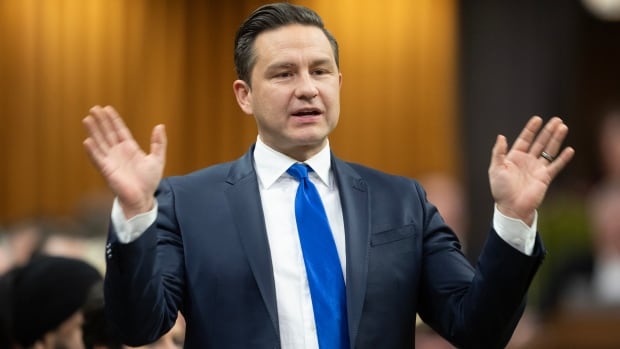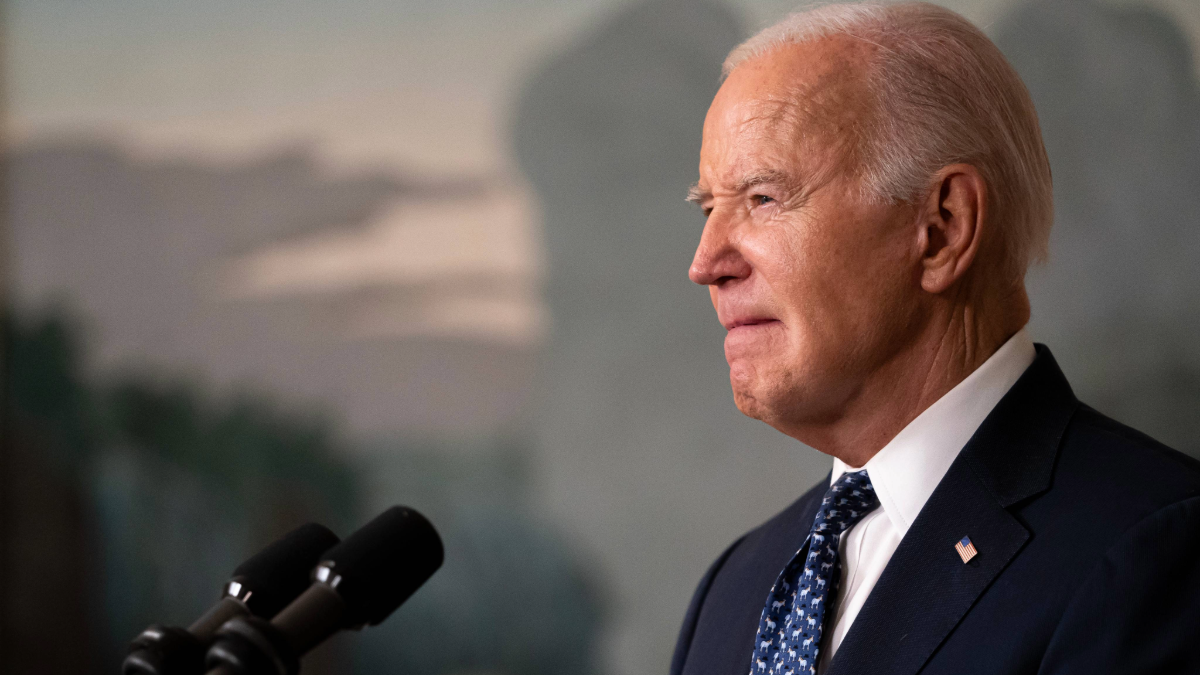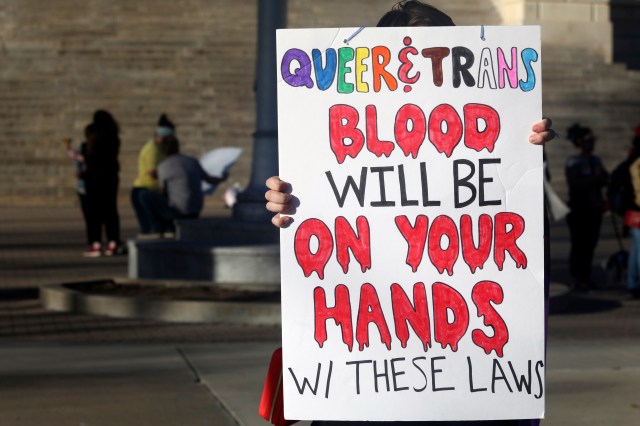
Asked on Monday about the new transgender health and education policies proposed by Alberta Premier Danielle Smith, Conservative Leader Pierre Poilievre pointed a finger at Justin Trudeau.
The prime minister, Poilievre claimed, was drawing attention to a provincial policy in an attempt to distract Canadians.
“Justin Trudeau wants to use this as a wedge issue,” Poilievre said.
The Conservative leader claimed Trudeau was also “spreading disinformation” on the subject, although he did not identify the statements he thinks are untrue.
“It’s time for Justin Trudeau to stop distracting and dividing Canadians,” Poilievre said. “Let parents raise kids and provinces run schools and hospitals. That’s my common-sense approach.”
Conservative Leader Pierre Poilievre says Prime Minister Justin Trudeau is peddling disinformation in order to ‘demonize’ Alberta Premier Danielle Smith for her proposed policies on gender-affirming care.
The Trudeau Liberals certainly have leaned into their objections to the new policies proposed by Smith’s government. They may believe it serves their political interests to do so. They also may simply feel strongly about the issue.
But that’s� how things work in a representative democracy. Political leaders tend to gravitate toward issues they feel strongly about and that align with the concerns of the voters they’re trying to reach.
On Monday, for instance, Poilievre was standing in front of a backdrop of cars and shipping containers and behind a podium adorned with a “stop the crime” placard to highlight his concerns about car theft. The event presumably had some political thinking behind it, even if it highlighted an important issue.
Poilievre also has political reasons for maintaining his focus on pocketbook issues like the cost of housing and inflation — issues that Trudeau’s government is having a harder time addressing.
In all cases, voters are free to judge the relevance of the issue being raised.
What Conservatives and Poilievre have said
But it’s also not just Trudeau (or Danielle Smith) looking to talk about how the state should approach transgender rights, education and health care.
Last fall, 69 per cent of delegates to the Conservative Party’s policy convention voted in favour of a motion that said those under the age of 18 should be prohibited from accessing “life-altering medicinal or surgical interventions” to treat “gender confusion and dysphoria.”
When he was asked for his own view of that resolution last September, Poilievre said he needed more time to study the issue. When asked this week — nearly five months later — whether Poilievre has decided where he stands on the matter, his office did not respond.
And it’s not as if Poilievre doesn’t have things to say about the broader issue. In an interview with the National Post last year, Poilievre said he stood for “parental rights” and accused the prime minister of wanting to “impose his radical ideology on other people’s kids.”
In the same interview, Poilievre said he thought “schools should get back to teaching reading, writing and arithmetic” and reminded his interviewer that he’d told Trudeau to “butt out” of policies proposed in Saskatchewan and New Brunswick.
It’s not clear what constitutes Trudeau’s “radical ideology,” but the phrase didn’t make it into any of Poilievre’s comments at two news conferences this week. Poilievre also didn’t answer directly when asked whether he supports Smith’s proposals.
But what Poilievre did say was still noteworthy.
His comment about leaving provinces to run schools and hospitals presumably is based on a strict reading of provincial jurisdiction. And it’s not wrong to say that schools and hospitals are the domain of provincial governments.
Prime Minister Justin Trudeau says the federal government ‘will be there to protect youth’ after Alberta Premier Danielle Smith proposed sweeping changes to the province’s gender identity and health-care policies.
But federal politicians of all partisan stripes tend to take rather elastic attitudes toward jurisdictional questions.
Housing, for instance, is largely the responsibility of provinces and municipalities. Poilievre has said that federal transfers to municipalities should be withheld if they don’t approve as much housing construction as he thinks they should. During his news conference on Tuesday, he criticized a specific land-use decision made by the city of Winnipeg.
Poilievre’s suggestion that parents should be left to raise their children also invites follow-up questions.
A common-sense concern about Alberta’s policies
There are several elements of the Alberta proposals that involve or prioritize parents. Schools must notify parents in advance, for instance, whenever a teacher plans to provide “formal instruction on subject matter involving gender identity, sexual orientation or human sexuality” — and parents must “opt in” if they want their children to receive that instruction.
Parents also will have to “consent for their child aged 15 and under to alter their name or pronouns used by school teachers, administration and other educational staff.” Parents of children aged 16 or 17 don’t have to provide consent but must still be notified.
In an interview with CBC Radio’s The Current last week, a transgender teen from Calgary said she fears such policies will do a “lot more harm than good to a lot of transgender kids” by taking away the supportive environment that schools can provide.
“That safe space, at least for me, gave me a really amazing place to connect with other people like me, and talk through our shared experience. And also, it just gave me the space to really explore my identity and who I want to be as a transgender woman,” Akira Hesslein said.
“I personally know a lot of students who are transgender and not out to their family, for fear of their family not accepting them. And I think that those students being outed to their parents would put them in a lot of really dangerous situations which could be — it could lead to them getting kicked out, it could just lead to a really unsafe space at home … Sometimes, not letting the parents know is the safest thing for the kid.”
Poilievre lamented on Tuesday that Liberals (and one journalist) were not being specific when they discussed Alberta’s plan. But that Calgary teen was offering a very specific criticism of a particular element of that plan.
On the face of it, it seems like a common-sense concern — and something more than a mere distraction.



